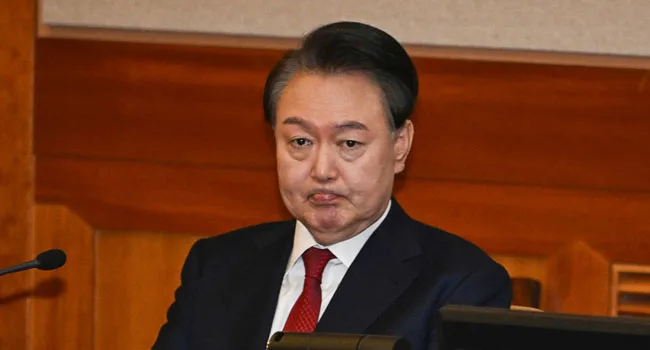Former South Korean President Yoon Suk Yeol was indicted Thursday on abuse of power charges in connection with his controversial martial law declaration, prosecutors said, adding to the embattled ex-leader’s growing legal troubles.
This new indictment, filed without detention, follows Yoon’s ongoing trial on charges of orchestrating an insurrection through his attempted declaration of martial law on December 3, which aimed to suspend civilian governance in one of Asia’s most stable democracies.
Under Yoon’s order, armed soldiers were deployed to the National Assembly, but the decree was overturned within hours. Opposition lawmakers, some of whom scaled fences to enter the parliament, swiftly voted it down. Parliament subsequently impeached Yoon, citing the martial law attempt as a gross abuse of power.
In April, South Korea’s Constitutional Court upheld the impeachment, stripping the 64-year-old of his office and presidential privileges. Yoon was forced to vacate the presidential residence shortly after.
Yoon was first indicted in January, while still serving as president, on charges of being the “ringleader of an insurrection” — a rare charge that is not protected under South Korean presidential immunity.
“We have proceeded with the insurrection trial while continuing supplementary investigations into the abuse of power allegation, which led to today’s additional indictment,” prosecutors said in a Thursday statement.
Yoon was briefly arrested in mid-January after a tense standoff with authorities but was released in March on procedural grounds.
Expanding legal jeopardy
The fresh indictment comes just a day after investigators raided Yoon’s private residence in Seoul in connection with a separate bribery probe involving his wife, Kim Keon Hee, and a shaman, Jeon Seong-bae, accused of accepting luxury gifts on her behalf.
Prosecutors allege that Jeon received items including a diamond necklace, designer handbag, and premium ginseng products — a prized and expensive health tonic in Korea — from a senior Unification Church official and passed them on to Kim.
Meanwhile, the Seoul High Prosecutors’ Office has reopened a stock manipulation investigation into Kim, a case previously dropped while Yoon was in office.
Additional allegations claim that Yoon interfered unlawfully in his party’s candidate nomination process during the 2022 parliamentary elections, while still president-elect.
Yoon has denied all wrongdoing across the multiple cases.
If convicted of insurrection, he could face life imprisonment or the death penalty, although South Korea has maintained a de facto moratorium on executions since 1997.
Yoon was the second South Korean president to be removed from office by the Constitutional Court and the third to be impeached by parliament.
With his removal, South Korea is preparing for a snap presidential election, scheduled for June 3.
AFP


